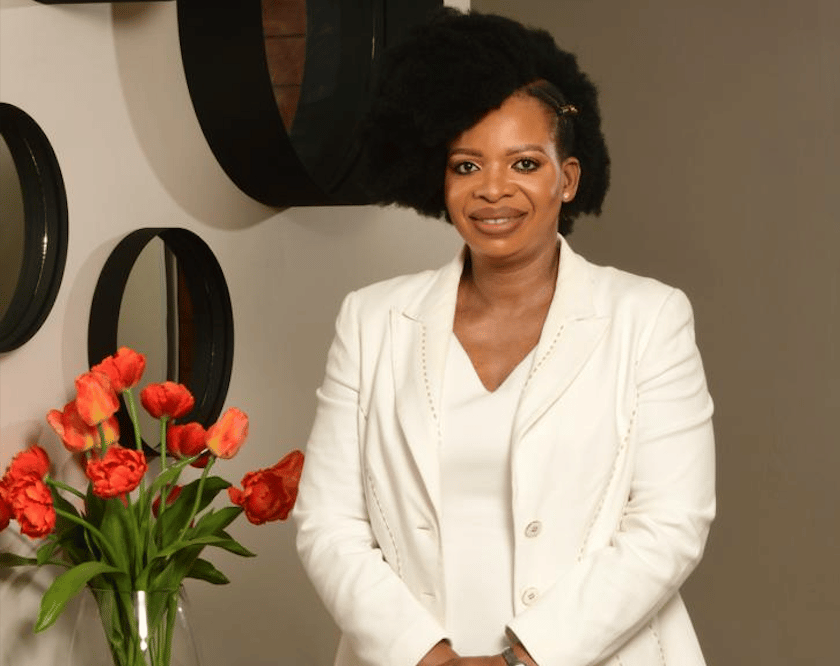Seven years ago, FORBES AFRICA interviewed Letty Ngobeni on her rise to successful entrepreneurship despite her disadvantaged background. Now, she is running not one, but multiple businesses that survived the onslaught of Covid-19.
This is a story of how South Africa has had its share of survivors and thrivers during the pandemic.
Take the case of Letty Ngobeni, from a small village called Nkuri in South Africa’s Limpopo province. As a child, her family was unable to afford school fees or uniforms, and she would often go to bed hungry.
It’s irony that she went on to become a teacher for 19 years. And thereafter, an entrepreneur.
Her maintenance company, Integrico, has catered to big clients in the country such as City Power, the South African Broadcasting Corporation, and MTN.
Loading...
Not only that, after running a successful catering business, Mndhavazi Caterers, she now runs OBC Vosloorus, a butchery and grocery store in Midrand, Johannesburg, marking her expansion into retail.
She has even opened up a guesthouse in the West Rand of Johannesburg called RNB Boutique Guesthouse. And there’s more to come.
“We are also adding a culinary school, which is called RNB culinary school, accredited by SETA. So we are fully fledged to operate a school, which we plan to open next year. So, we have been expanding in terms of our scope,” Ngobeni says to FORBES AFRICA.
A differentiating factor with the school is that they don’t only train the chefs, but employ them after, absorbing them into the corporate canteens.
Currently, they have 18 corporate canteens.
“I think what I’ve learned during the past six years, and especially during the time of Covid is that it is important to balance your finances. I went for training, an incubation program with Property Point, where they have taught us the importance of cash flow. You need to have cash flow at least for a period of six months, just to cater for unforeseen expenses.”
“I know people say ‘use other people’s money to make money,’ but I beg to differ. I don’t like using other people’s money to make money. Because when Covid hit, and you are owing the bank, or any other company that financed you, then how are you going to pay that back? Instead, the interest rates keep on piling, you end up owing a lot, and then you are unable to pay back the money that you owe.”
Ngobeni says when Covid-19 came, they didn’t owe anyone anything, a saving grace during the pandemic.
She says while her husband and her were “extremely sick” with Covid, they had to rely on and trust their managers, who were given an opportunity to showcase what they were capable of and managed to impress Ngobeni.
“I have learned to appreciate the value of life. And I have also learned that material things are just vanity.”
She says that she has realized that no matter how much money you have, money cannot buy life.
When Ngobeni’s husband was first ill with Covid, she took him to the hospital, but there were no beds available in the ICU. They had to wait, and the doctor asked her what she wanted to do.
She asked them to get a bed for her husband. Around midnight, she pretended to be strong so they would allow her to drive home, despite her breathing issues.
Before leaving the hospital, however, she asked her son to bring her laptop to the hospital, and contacted their financial advisor. She could not speak because of the state of her lungs, so she sent WhatsApp messages, asking the financial advisor to make changes to their finances to allow their children access to their funds.
When Ngobeni woke up the next morning, around 6AM, she was surprised and thankful to be alive. Her husband spent two weeks in hospital, but also pulled through.
She says another thing she has learned through Covid-19 is that a life of tenders is not a sustainable way of doing business. As the MTN canteens had closed during the hard lockdown, there would have been no other sustainable form of income. Luckily, their retail business kept them afloat.
“People always need to eat,” she explains.
Rolling black outs, or ‘load shedding’, as it’s known in South Africa, has affected Ngobeni’s retail store. They had to buy a generator, and the price of diesel has increased, which has affected their profits.
“Load shedding is especially killing small businesses. I think that it does affect big businesses, but not at the scale at which it affects medium enterprises, like us.”
During the pandemic, as people lost jobs, she also increased her Corporate Social Investment efforts, buying sanitary pads and soccer kits for schools and supplying food every month to places they thought were in need.
“We can afford to share with other people who had nothing during that time, a practice that we are still continuing even now. Because for me, personally, when I give, I derive a certain joy that I cannot explain, so giving has become part of me.”
And the most important thing she realized running businesses?
“If you don’t have a team, it’s nothing. The most important and critical assets are your people, your employees, your team.”
Loading...
